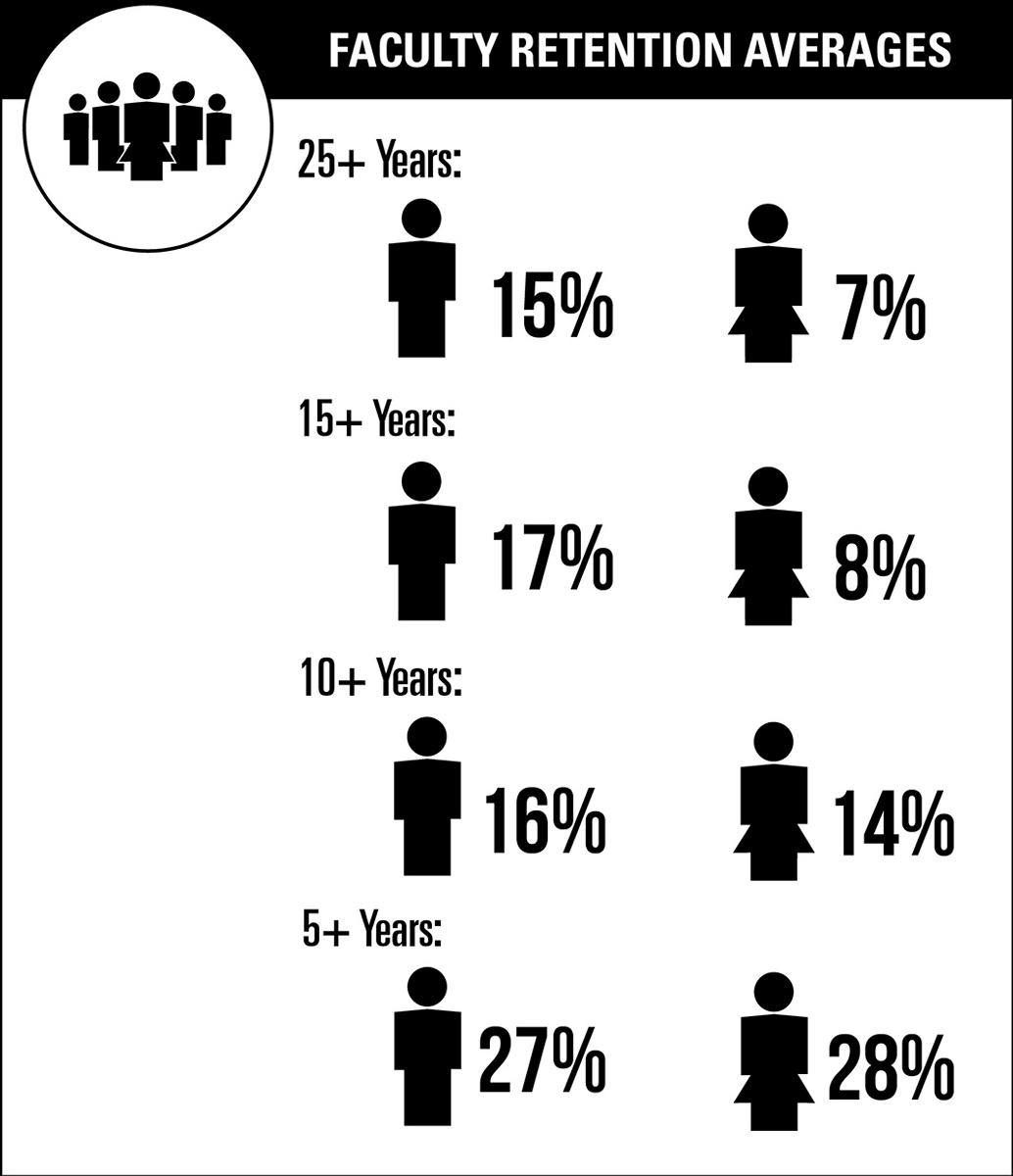Biola strains to retain female faculty members in a slowly evolving gender climate. An unbalanced gender ratio contributes to this as roughly only thirty percent of faculty is composed of women, said David Nystrom, provost and senior vice president.
Seven women faculty members left Biola at the end of last spring semester, some of which could indicate the effectiveness of how the university handles gender issues, Nystrom said. Although this number remains above average, the issue presents itself continuously within Biola faculty. Though the university works to rectify these issues, its attempts are not as effective as some would hope.
“I don’t know if Biola valued women enough to make efforts to retain them,” said Sue Russell, former anthropology department chair.
Retaining some of the women that left last semester could have been accomplished through intentional efforts to address their concerns, Russell said. During her time at Biola, Russell said she made it known that she wanted to work with graduate students and further utilize her multiple degrees, but the university did not try to accommodate these goals.
While former English department chair Natasha Duquette received university support to publish her research, she said that more women need the same level of support.
“I do think that Biola has to be very careful to support women’s publishing,” Duquette said.
In response to the issues brought up by former faculty members, Nystrom acknowledged that the university faces gender climate issues and improvements are in progress.
“The fact that some of the female faculty who left Biola did so because they did not find the environment here congenial is a concern for me. We will work to identify and implement strategies that will improve the environment so that women at every level can flourish here,” Nystrom said.
LINGERING TRADITIONS
At the request of former provost Gary Miller, psychology professor Elizabeth Hall and other colleagues performed a gender climate study on the university in 2006 that examined whether or not women faculty found their environment sexist. Although the study showed that the women did not think of their environment as sexist, they rated lower than their male counterparts in various areas, such as a sense of fitting in at Biola, Hall said.
Research has proven that a sense of belonging plays a factor in an individual’s longevity and retention in the workplace, Hall said. In addition, promotion levels and privileges received among women fell below that of their male colleagues. There are a variety of potential factors that attribute to these issues, one of which is theological standards.
“I think a lot of what happens around here is completely unintentional and has to do with the fact that we live in an evangelical community where there are very very specific norms for the ways that men and women are supposed to do things,” Hall said.
Women in leadership experience reminders of these norms on a regular basis. When Duquette first stepped into the chair position, she found herself feeling isolated as the gender minority.
“I thought ‘This is a totally different world that I’ve never seen at Biola before,’ even just the chair level of leadership. So what it’s like for a woman at Biola to then go into the dean level of leadership, that would probably be even further alienating,” Duquette said.
These issues concerning the treatment of women in leadership appear attached to deep rooted traditions.
“Maybe there are cultural patterns that are old, not even the present leadership…but old cultural patterns, even left over from when it was a Bible college. Maybe there are cultural patterns and you feel the rub of that,” Duquette said.
However, this gender bias not only shows up in evangelical institutions such as Biola, but also throughout all of academia, Russell said.
CHANGE THROUGH INTENTIONALITY
Although this issue might be an unintentional byproduct of different factors, an intentional approach might prove to be the solution.
“If you change a cultural pattern then you change people’s perceptions when they see another human being,” Duquette said.
To change those cultural patterns, several areas need improvement to better female retention at Biola, Nystrom said. One of these areas include more diversity in the hiring process, which, over time, could improve the unbalanced faculty ratio.
“It’s natural, its a human foible, to go find people who you already know, and when you do that you end up reproducing what you look like,” Nystrom said.
Despite making efforts and discussing impending movements, intentionality from positions of authority presents itself as the only viable solution.
“Unless you have somebody really really intentional about [retention] in a position that can do that, I don’t know if you’ll retain women,” Russell said.







